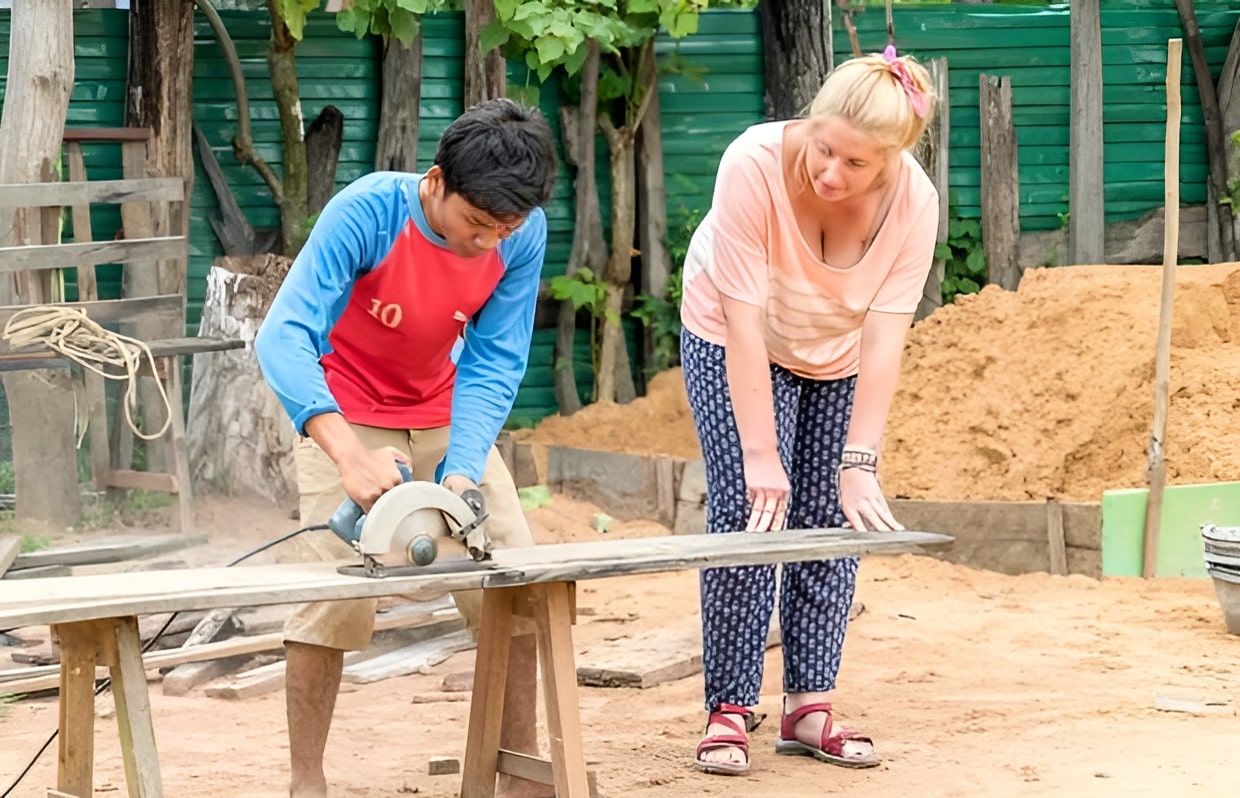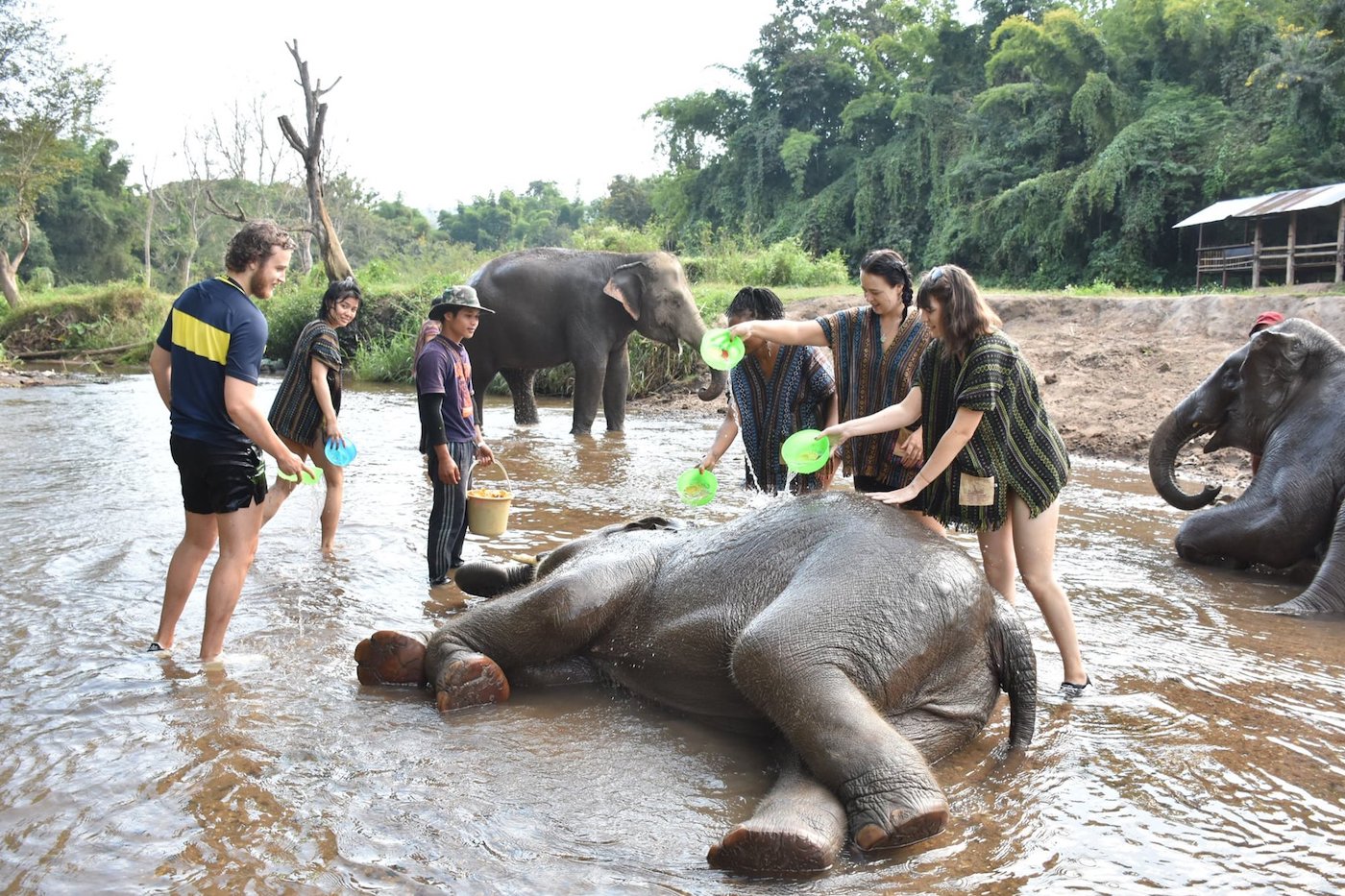Volunteering Abroad: The Reality No One Talks About

18
Feb, 2026
Volunteering abroad sounds noble—and it can be! But the reality is often messier than those perfect Instagram shots of glowing tourists posing with local kids.
The problem with volunteering overseas is that many people don’t have the specific skills truly needed for the roles, and most organizations require a minimum commitment of six months to genuinely “make a difference”—not just three days.
Because of this, often it’s the volunteers who end up benefiting more from these programs than the organizations or communities themselves. Of course, wanting to help is never a bad thing—but, in general, it’s how you help that really matters.
So before you book that volunteer trip, ask yourself honestly:
- Why do I want to volunteer?
- Do I have skills that match the community’s needs?
- Can I commit the time required to make a real difference?
Now let’s take a closer look at the reality of the most popular volunteer jobs.
What is “Voluntourism”?
Voluntourism, or volunteer tourism, is a type of travel that combines volunteering with a trip to a developing country, aiming to give back and make the holiday feel more meaningful. It often involves short-term, unskilled work like building houses, giving informal English lessons, helping animals, or children in an orphanage.
The Top 4 Most Popular Volunteer Gigs
1.) Teaching English
Teaching English overseas is one of the most common volunteer options for travelers, especially for Americans whose first language is English. But guess what? Speaking English does not mean you automatically know how to teach it.
I taught English in Korea for 5 years—with zero teaching credentials.It took me a solid year of looking up on the internet “what is an adverb?” to finally be a somewhat decent teacher. It also took me a long time to figure out what worked and what didn’t. Sadly, the reality is that my students learned a minimal amount of English during my first year in Korea.
By the end of that first year, I realized just how minimal my grasp of English grammar really was. So I decided to venture into kindergarten and I learned that I excelled at singing songs about Annie Apple and Zig Zag Zebra! And after weeks of busting moves in front of my mirror, I came up with a Macarena dance to teach the months of the year Success of the year—especially the shimmy shake at the end!
All that to say: just because you speak English doesn’t mean you automatically know how to teach it. It took me an entire year to start figuring it out, and honestly, I still feel bad for the parents who paid me to teach their kids during that first year.
So, if you’re considering teaching English abroad, that’s great. There’s definitely a real need for qualified English teachers out there. But do everyone a favor and keep this in mind:
- Get some basic training first. A TEFL or TESOL certificate at least.
- Remember that teaching is a skill in itself—not just talking.
2.) Building Schools or Community Center
Another favorite volunteer fantasy: flying halfway around the world to build a school. Sounds heroic, right? But here’s a question: Have you ever built anything in your life?
If your only carpentry experience is the pencil holder you made in eighth-grade shop class… this might not be your calling. Chances are, you’ll be learning from local builders rather than helping them. Locals often have far more skill, knowledge of materials, and practical experience than any temporary foreign volunteer.
That tagline you sometimes see—“immerse yourself in the culture by learning to build a structure from a palm tree”—isn’t always what it seems. If you’re being taught by a local who isn’t being paid, and you’re calling it volunteering… who’s really benefitting?
Also, when you’re helping to build any public facility, it’s important to check whether the project is government-backed. If the government is funding the project, they’re responsible for hiring local workers to build things like schools. If you volunteer in that situation, you could end up taking jobs away from local people. So first and foremost, find out who’s funding the project. If it’s the state, you might actually be harming the community more than helping it. However, if it’s a legitimate non-profit organization that truly needs volunteers, then go ahead—but always make sure you know who you’re helping.
3.) Helping Animals
I feel like these volunteer programs are the most valuable—but honestly, I don’t always think of them as traditional volunteering. They’re more like educational experiences. You get to learn about the animals’ behaviors and habitats, then spend a few hours each day doing maintenance or shadowing full-time staff to see how they care for the animals and their environments.
That said, some companies that claim to support wildlife were actually started just to take your money. Many fall under the umbrella of ‘voluntourism’—a type of travel that mixes volunteering with tourism, but often focuses more on giving travelers an experience than on making a real impact. There are plenty of elephant ‘volunteer’ camps like this—where most of what you do is take photos with the elephants or help bathe them, rather than truly supporting conservation.
Volunteers giving a bath to an elephant.
That said, there are some fantastic and ethical animal programs out there—you just need to do your research. The list is much longer than this, but here are a couple of great examples:
-
Sea Turtle Conservancy (Costa Rica): Volunteers patrol beaches to protect nesting turtles.
-
Wildlife Friends Foundation Thailand: They rescue animals from abuse and ban elephant rides or performances.
4.) Volunteering in Orphanages
Helping children in need sounds admirable, but it’s one of the riskiest areas for well-meaning volunteers—where good intentions can easily lead to unintended harm.
The myth is that orphanages are full of kids without parents. In reality, many children have at least one living parent but end up in institutions because their desperate families believe the orphanage can provide better food or education than they could provide them. And while volunteers think they’re helping orphans, they don’t even realize that they end up supporting a system that unnecessarily separates children from their families.
The truth about short-term volunteering in orphanages is that, while volunteers often believe they’re bringing love and joy to the children, the constant flow of strangers actually often causes emotional distress and attachment issues for the kids.
But the saddest of it all is that in some places, the big demand for “voluntourism” has actually caused many orphanages to open just to get donations and volunteers. A somber example is the Cambodia orphanage scandal, where dozens of orphanages in Cambodia were accused of abuse, neglect, or exploiting children to attract empathy and donations…
Child protection and NGO workers have long urged tourists and volunteers to avoid orphanages in Cambodia. UNICEF recommends supporting community programs that keep families together and offer education or healthcare instead. If you want to help children, do thorough research to find safe, responsible ways to make a positive impact without causing unintended harm.
Final Thoughts
Volunteering abroad can be meaningful, but good intentions aren’t enough. Without the right skills, time, and research, you might do more harm than good.
Be honest about what you can offer and what the community needs. Sometimes the best way to help is by supporting the local economy—buy local, hire local, and respect the culture.
Travel responsibly, help where it matters, and make a difference that lasts. Happy travels!






